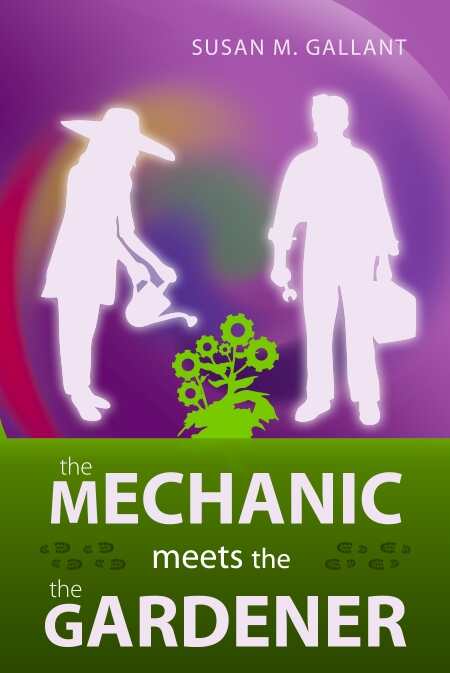The Mechanic Meets the Gardener
- 2012 INDIES Finalist
- Finalist, Body, Mind & Spirit (Adult Nonfiction)
- 2012 INDIES Finalist
- Finalist, Self-Help (Adult Nonfiction)
In The Mechanic Meets the Gardner, Susan M. Gallant puts divergent worldviews into useful conversation.
Gallant believes that individuals hold within them a variety of often contradictory worldviews, and she offers two fresh archetypes as examples. The first, which she calls “the mechanic,” represents orderly, even conservative, thinking, wherein all that occurs has an explanation and all that is desired can be achieved with the right combination of ingredients. The second one, “the gardener,” represents the perspectives that all in the universe is connected. To illuminate these perspectives, Gallant employs practical examples from politics and popular culture, which she delivers alongside dense concepts such as “holographic realities” and “radical interconnection.”
Gallant goes to great lengths to detail the practical effects of engaging these disparate perspectives: one upholds hierarchies, one looks toward holism; one rejects the unseen, the other embraces the notion of endless possibilities, etc. The crux of her argument is that, despite how radically different the mechanic and the gardener may seem, every individual embodies some degree of each worldview. As such, Gallant doesn’t condemn either worldview, though she seems to think that the gardener’s perspective offers the greatest potential for enlightenment.
Allowing one’s inner “gardener” to redirect mechanical perspectives can have, the author argues, a self-edifying and centering effect. Natural energies can be explored, wholeness pursued, and balance achieved. Gallant encourages an end to self-negation, which she calls “the junk food of life,” in favor of accepting that one’s beliefs directly affect the universe. By refusing to engage negative inclinations, the author suggests, self-transformation is both possible.
Later chapters contain exercises for engaging one’s inner gardener, from meditation and mindfulness to new-age practices, like the balancing of chakras, which are clearly outlined for beginners who have never engaged them before. Those practices, however, may cause inward conversations between gardener and mechanic to stall, particularly for those in whom mechanical perspectives dominate and to whom terms like “aura” are anathema.
Nevertheless, Gallant puts forth an intelligent, well-argued case for internal reflection and self-care, one which even those left dubious will be hard-pressed to condemn. When Gallant address topics in a practical manner—regarding contemporary behaviors and individual mannerisms, for example—she proves quite approachable; her presentation of less familiar concepts, though deftly articulated, will require more patience of the mechanically minded, who are the readers she’s most eager to convince. The Mechanic Meets the Gardener is a compelling project of magnanimous intent with the potential to aid in transformations of the willing.
Reviewed by
Michelle Anne Schingler
Disclosure: This article is not an endorsement, but a review. The publisher of this book provided free copies of the book and paid a small fee to have their book reviewed by a professional reviewer. Foreword Reviews and Clarion Reviews make no guarantee that the publisher will receive a positive review. Foreword Magazine, Inc. is disclosing this in accordance with the Federal Trade Commission’s 16 CFR, Part 255.

